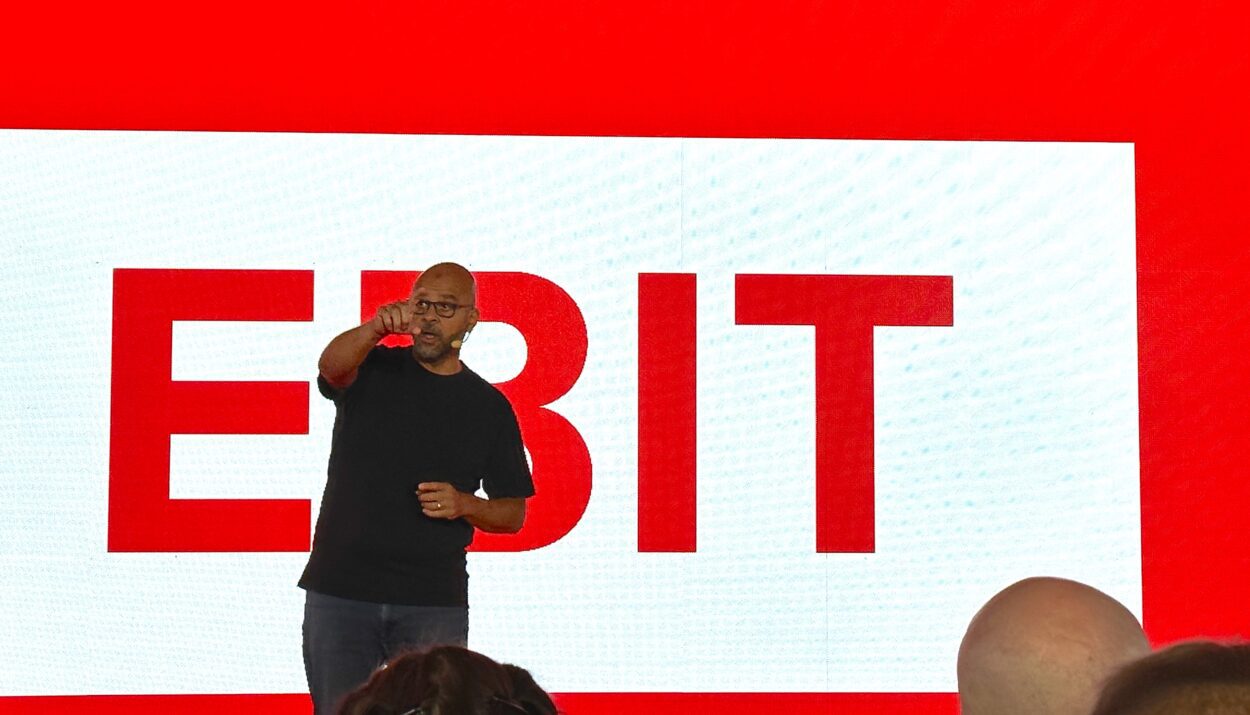The largest executive gathering in Lithuania, this year’s EBIT conference, showcased the nation’s unwavering optimism despite the ongoing war in Ukraine. The event underscored the country’s ability to leverage advanced and emerging technologies such as AI (where ), highlighting its flexibility and the local business community’s strong desire for growth. This aligns with the vision of AI experts like Mo Gawdat, who see technology as a tool for progress and advancement.
Renowned for its comprehensive agenda, the conference covered a wide range of topics essential for modern business leaders. Discussions included business management strategies, the intricacies of psychology and philosophy, as well as critical issues like climate change and global conflicts. EBIT 2024 provided a rich platform for in-depth discussion and insights.

A Deep Dive into AI and Future Technologies
A major highlight of the conference was a keynote speech by Mo Gawdat, who captivated the audience with his profound insights into the development of artificial intelligence. Gawdat emphasized the top sentient technologies of our time: AI and synthetic biology.
He pointed out that reinforced learning in AI reached a pivotal moment in 2023 with the emergence of ChatGPT, leading to a new reality where “the smartest being on Earth is no longer human.” Gawdat explained that AI now has the capability to develop superior graphics, video, and sound effects, and can even surpass humans on an emotional level. For instance, AI-driven cars make significantly fewer mistakes than human drivers.
Gawdat warned of the potential misuse of AI, highlighting that if improperly harnessed, AI could far exceed human intelligence, citing Albert Einstein’s IQ of over 157 as a benchmark. He described intelligence as a commodity, urging that we should not fear AI but rather use it as a tool. “We are building something that can be called intelligence as a commodity,” he stated.
However, Gawdat expressed a sobering prediction that better life and abundance might not materialize as expected. He criticized the capitalist mindset of the western world, noting that every time humanity gains more power, it tends to use it for personal gain rather than collective betterment. This mindset might lead to more control, distrust, restrictions, and monitoring among people.
Mo Gawdat: The Future Implications of AI
Gawdat warned of an impending “end of reality as we know it” due to AI’s ability to fake and simulate new realities. He stressed the urgent need for action and readiness for some discomfort before we can fully benefit from AI’s potential. He urged the community to start learning AI tools, emphasizing caution, human connection, and ethical considerations. “Ethics, ethics, ethics,” he repeated.
He highlighted the current lack of government understanding necessary to regulate AI properly and pointed out a significant challenge: “We are running out of data to train AI.” Most AI is trained using US-based data, leading to a lack of representation of other cultures and countries.

Gawdat also discussed the ultimate goal of building AI-based brains, noting that this would not be achieved by a single company but through many AIs connected together, with AI systems capable of selecting the best tools for specific tasks.
Preparing for the Future
The insights from Mo Gawdat and other speakers at EBIT 2024 provide a glimpse into a future where AI and other emerging technologies play a pivotal role. While the potential of these technologies is immense, there are significant ethical, cultural, and regulatory challenges that need to be addressed. The conference highlighted the importance of proactive learning, ethical considerations, and global cooperation to ensure that the advancements in AI benefits humanity as a whole.
As we look to the future, it’s clear that the integration of AI into various facets of life will require careful management and a commitment to leveraging these technologies for the greater good. The dialogue at EBIT 2024 serves as a crucial step in navigating these complex yet exciting times.










